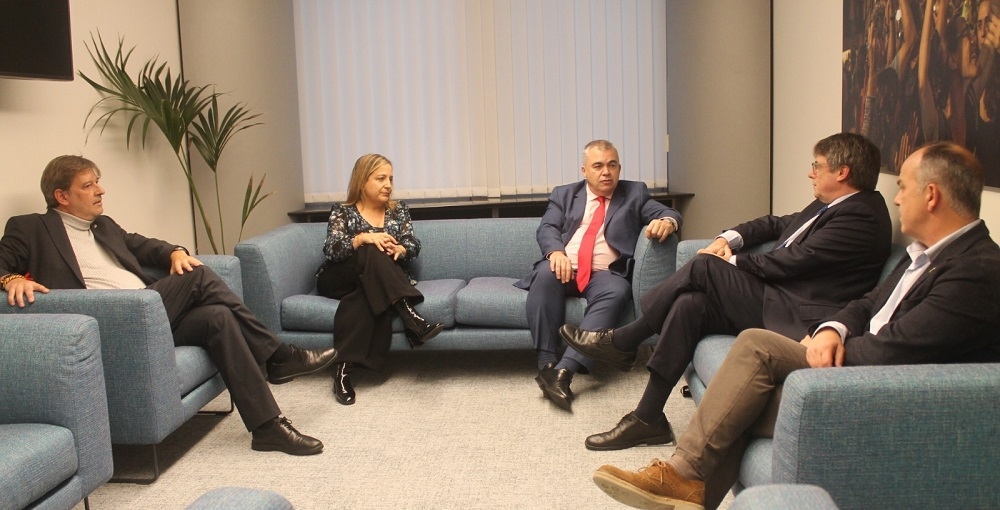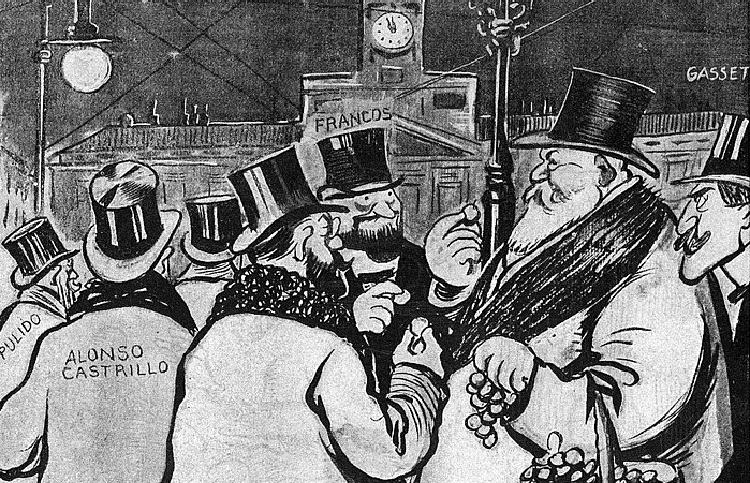Eduardo González
The State Secretary for the EU, dependent on the Ministry of Foreign Affairs, has defended the possibility of offering “formulas” for “early integration” to candidate countries that allow them to participate in “certain community policies” before their actual accession and appreciate “the benefits” of their future membership in the Union.
“The enlargement has been stopped for many years and, although we can make mutual accusations between candidates and the EU, there is no good news and a certain fatigue is evident in the candidates,” declared Miguel Alonso Berrio, chief of staff of the State Secretary for the European Union, Pascual Navarro, during the presentation of the Report on the state of the EU 2023, prepared by the Alternativas Foundation and the Friedrich-Ebert-Stiftung.
“The historic decisions on Ukraine, Moldova and partially Georgia have placed enlargement very prominently among the priorities on the European agenda, but we found great difficulties among the candidates to reach port and be prepared,” he continued. For this reason, he indicated, “there is a reflection in the EU on how we can accelerate the enlargement process without reducing demands, and, at the same time, offer the candidates some benefits of integration.”
“In the debate between integration and enlargement, which are not necessarily linked in a strict way, we can prepare for enlargement by anticipating in some way integration issues, such as a greater presence in institutional debates, the reinforcement of aid to candidate countries for accession or integration in certain policies, for example, in specialized EU agencies,” he explained. “There are formulas that would allow citizens to see the benefits and that the expansion is serious,” he added.
However, Alonso Berrio admitted that there are “problems” for this “integration prior to enlargement.” Among them, he highlighted issues related to conditionality (technical, economic, respect for the rule of law or the ability to manage European funds “properly”), the availability of funds to help candidates and “pay the bill.” of enlargement” or “the problem of the integrity of the internal market”. “We cannot integrate a candidate into agricultural or industrial policy because in the end they are the same dilemmas that we had when we were negotiating Brexit: either you are a member of the EU or you are not, or you are part of the European Economic Area or you are not part, “You cannot choose at random where you want to be integrated,” he said.
López Garrido: five great challenges for the next European legislature
During the same event to present the report, which took place this past Wednesday at the headquarters of the European Commission Representation in Madrid, the executive vice president of the Alternativas Foundation and former State Secretary for the EU, Diego López Garrido, stated that legislature that emerges after the European elections in June 2024 will have to face “five specific challenges.”
One of the most important, he warned, is “the enlargement of the EU and, specifically, the entry of Ukraine.” “The issue of Ukraine is key and we will see what happens at the December European Council in Brussels, we will see if it clearly approves the formalization of Ukraine’s negotiation to enter the EU,” he stated. Precisely, the president of the European Commission, Ursula von der Leyen, recommended this past Wednesday to the European Council that it give its approval to begin accession talks with Ukraine and Moldova.
Two other “fundamental” challenges of the next legislature, he continued, are “the economic agenda”, with special attention to industrialization (“the great objective of the EU, a priority of the Spanish Presidency and a capital issue on the economic agenda” ) and the circular economy; and the “social agenda”, an issue in which the EU “is at the forefront of the planet and is clearly ahead of the US and China”, but which still has to face delays in matters of migration and asylum. In his opinion, it is essential “that progress be made in the Migration and Asylum Pact, especially for the Mediterranean countries”, but “it has not yet been achieved satisfactorily” and it remains a matter “still exclusively for the States and without a “We march pro-European.”
The fourth great challenge, according to López Garridos, is “the existence in the Treaties of elements that are enemies of European integration”, such as “the veto capacity of any of the 27 in any EU decision in foreign, security and defense policy or in tax matters.” “The veto on security and taxation,” he warned, “is connected to enlargement, because it will be impossible to think that the veto can subsist with 33 or 34 States in the EU.” The fifth and final challenge, she concluded, is open strategic autonomy, “a very important underlying concept that will hover over European politics throughout the next legislature.”
For her part, María Pallares, program coordinator at the Friedrich-Ebert-Stiftung in Madrid and coordinator of the report, explained that, in view of next year’s European elections, “two questions underlie”: how will the EU “to the polycrises, which are becoming more and more complicated, and to the different transitions, while improving the lives of citizens”, and “how the EU faces enlargement and its corollary, which is the reform of the Treaties”. All these challenges, she warned, can be faced by “a more complex European Parliament, and everything indicates that it will be a more Eurosceptic European Parliament.”







